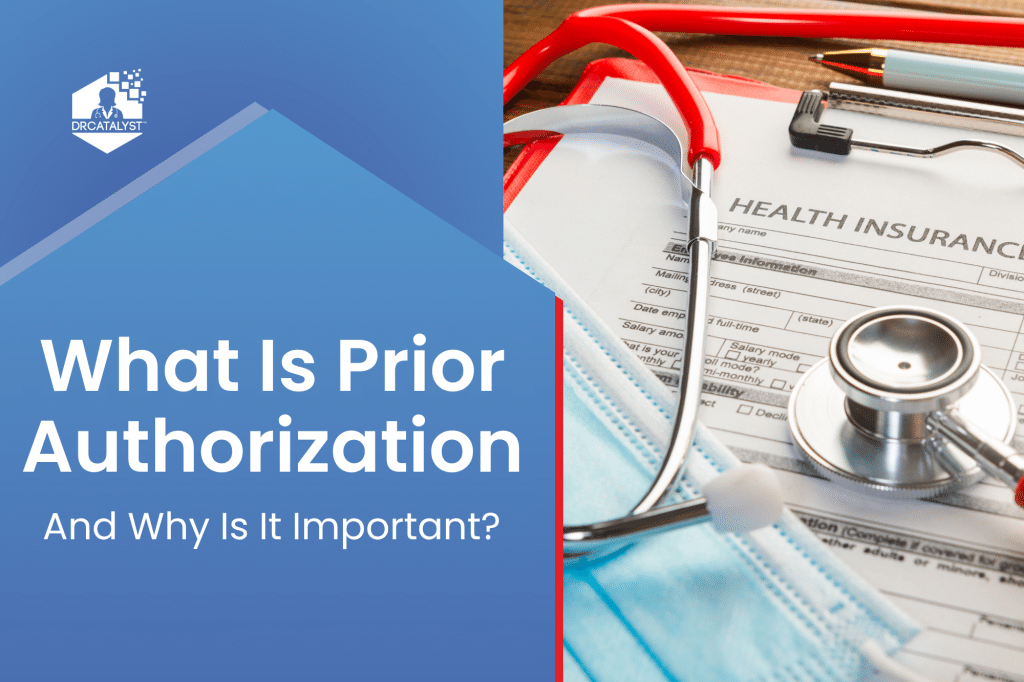Introduction to Allergy Clinic Essentials
Allergies affect millions of individuals worldwide, manifesting in various forms and severity. Accurate diagnosis is paramount for healthcare professionals working in allergy clinics to provide patients with effective treatment and management strategies. Diagnostic codes are crucial in this process, serving as a standardized language that facilitates communication among healthcare providers, insurers, and regulatory bodies.
Navigating the complexity of allergy diagnostic codes can pose several challenges for healthcare professionals. Inaccuracies in allergy diagnostic codes can negatively impact patient care, healthcare operations, and financial outcomes.
But don’t feel overwhelmed by these challenges. To successfully alleviate the pain points of medical billing, you need the right tools and strategies, and DrCatalyst is here to help you along the way.
What are Diagnostic Codes?
Diagnostic codes are standard medical codes used to identify diseases, disorders, symptoms, and injuries. They are crucial in classifying and categorizing patient information. This process helps healthcare providers keep track of patient data and enables accurate billing and reimbursement for medical services.
The International Classification of Diseases (ICD) is the most widely used diagnostic code system globally. It is maintained by the World Health Organization (WHO) and is regularly updated to reflect the latest medical knowledge and practice changes.
Common Diagnostic Codes in Allergy Clinics
ICD-10 Code: J30.1 – Allergic Rhinitis, Due to Pollen
Allergic rhinitis, or hay fever, ranks globally among the most prevalent allergic conditions. Characterized by sneezing, nasal congestion, itching, and watery eyes, allergic rhinitis stems from hypersensitivity to environmental allergens, such as animal dander, pollen, or dust mites. The diagnostic code J30.1 specifically denotes allergic rhinitis triggered by pollen, a common complaint during certain seasons.
ICD-10 Code: J45.909 – Unspecified Asthma, Uncomplicated
Asthma, a chronic respiratory condition, manifests as recurrent wheezing, coughing, chest discomfort, and shortness of breath. Various factors can trigger asthma attacks, including allergens, respiratory infections, and exercise. Allergic asthma accounts for a significant proportion of cases seen in allergy clinics. The code J45.909 indicates unspecified asthma without complications, encompassing cases where asthma symptoms correlate with allergic triggers.
ICD-10 Code: T78.40XA – Allergy, Unspecified, Initial Encounter
Allergies can elicit various reactions, ranging from mild itching to severe anaphylaxis. The allergy diagnosis code T78.40XA encompasses allergic reactions of unspecified severity during the initial encounter with healthcare providers. This code is a catch-all for allergic presentations requiring evaluation and management in allergy clinics, facilitating appropriate documentation and treatment initiation.
ICD-10 Code: L50.0 – Urticaria Due to Specific Substances
Urticaria, or hives, is a skin disorder characterized by raised, itchy, and red welts. The code L50.0 specifies urticaria attributed to specific substances, indicating an allergic etiology. Identifying the causative agent in allergy clinics is paramount for devising personalized treatment strategies, whether through allergen avoidance, antihistamines, or immunotherapy.
ICD-10-CM Diagnosis Code Z88.0 Allergy Status to Penicillin
Penicillin allergy occurs when the body’s immune system mistakenly identifies penicillin as a harmful substance and mounts an immune response against it. ICD-10-CM Diagnosis Code Z88.0 pertains to a patient’s history of allergy to drugs, medicaments, and biological substances. This code documents a patient’s past allergic reactions to specific medications, vaccines, or other therapeutic substances.
Challenges in Utilizing Diagnostic Codes
The utilization of diagnostic codes can present several challenges. One of the biggest challenges is the accuracy of the codes themselves. If the codes are not entered correctly, it can result in incorrect diagnoses and treatments, leading to potentially harmful consequences.
These challenges include:
Billing and Reimbursement Issues
An inaccurate ICD code can impact healthcare reimbursement and revenue cycle management. Billing for allergy diagnosis, treatment, or testing services relies on accurate coding to ensure appropriate reimbursement from insurance payers. Incorrect or incomplete allergy codes may result in claim denials, delayed payments, or underpayment for services rendered, affecting the financial viability of healthcare organizations and potentially leading to revenue losses. Missing information is one example. A single omission in a required field on a claim form may cause a denial. These errors contribute to 61% of initial medical billing denials and 42% of denial write-offs.
Legal and Regulatory Compliance
It is crucial for healthcare providers to ensure accurate allergy coding to avoid non-compliance with legal and regulatory requirements, which can lead to potential legal issues and financial penalties for healthcare organizations. One primary concern is the violation of healthcare fraud and abuse laws, such as the False Claims Act (FCA) in the United States. Submitting claims with inaccurate codes, whether through negligence or intentional deception, can be construed as fraudulent behavior. Healthcare providers found guilty of such misconduct may face severe penalties, including fines, exclusion from federal healthcare programs, and even criminal prosecution.
Misdiagnosis and Mismanagement
Incorrect allergy diagnostic codes may lead to inadequate management or misdiagnosis of allergic conditions. If healthcare providers use inaccurate allergy information, they may prescribe medications or treatments that could trigger adverse reactions in patients. These errors can result in unnecessary discomfort, complications, or even life-threatening allergic responses.
Best Practices for Allergy Clinic Coding
To overcome challenges and optimize coding practices in allergy clinics, healthcare providers should consider the following best practices:
Comprehensive Documentation
Ensure thorough documentation of patient allergy histories, including specific allergens, reaction types, severity, and any associated symptoms.
Document allergy testing results, including the type of test performed, allergens tested, and interpretation of results.
Be familiar with payer requirements for coding and billing, including any specific codes or modifiers required for reimbursement.
Stay Updated on Coding Guidelines
Stay informed about changes and updates to coding guidelines, including revisions to ICD-11, CPT, and HCPCS (Healthcare Common Procedure Coding System) associated with allergy diagnosis and testing.
Review coding resources regularly, such as coding manuals, newsletters, and online databases, to stay current with coding requirements and best practices.
Utilize Technology
Implement EHR systems with built-in coding functionality to streamline coding processes and reduce errors.
Utilize coding software to assist with code selection, validation, and cross-referencing.These tools help professionals convert medical diagnoses, procedures, and services into universally recognized alphanumeric codes.
Consider Hiring a Virtual Billing Team
Hiring a virtual billing team can lead to faster reimbursement and a significantly improved cash flow, providing financial security for the allergy clinic by allowing for a more efficient and streamlined billing process.A virtual billing team can provide expertise in coding and billing regulations, reducing the risk of errors and denials.
Find reliable staffing solutions experts like DrCatalyst.Our experienced remote medical billing professionals are well-versed in healthcare billing and coding complexities. We guarantee to bring a wealth of expertise to the table.
How DrCatalyst Can Help Improve Your Billing Services
DrCatalyst stands out as the premier choice for hiring a remote medical billing team due to several key factors that distinguish it from competitors in the industry. Our expertise, remote work infrastructure, cost-effectiveness, compliance and security measures, customized solutions, and dedicated support make it the best company to hire for remote medical billing services.
- Expertise in Medical Coding:
Our remote medical billers have extensive training and experience in medical coding, including the appropriate usage of the ICD code J30.1. They know when to appropriately use easily confusing codes: J30.1 for allergic rhinitis and J30.81 for rhinitis due to pet dander. Their expertise enables them to accurately assign diagnostic and procedural codes for allergy clinic services, ensuring compliance with coding guidelines and maximizing reimbursement.
- Revenue Cycle Management Support:
DrCatalyst’s remote medical billers offer comprehensive revenue cycle management (RCM) support to allergy clinics, including charge entry, payment posting, denial management, and accounts receivable follow-up. By managing the entire billing process remotely, they enable allergy clinic staff to focus on providing quality patient care without the burden of billing tasks.
- Cost-Effective Solution:
Outsourcing medical billing to DrCatalyst’s remote medical billers offers allergy clinics a cost-effective solution compared to hiring in-house billing staff. We provide prior authorization charges, payment posting entries, and more. Our clients save an average of $16,640 annually per full-time equivalent by utilizing our remote billers.
Optimize Your Billing Services with Our Expertise!
DrCalayst’s remote medical billers offer allergy clinics a valuable resource for overcoming medical billing challenges. Their expertise in medical coding, efficient claims processing, revenue cycle management support, coding accuracy, cost-effectiveness, access to technology, and scalability make them an indispensable partner in optimizing billing operations and maximizing revenue for allergy clinics. Contact us for a complimentary consultation.









